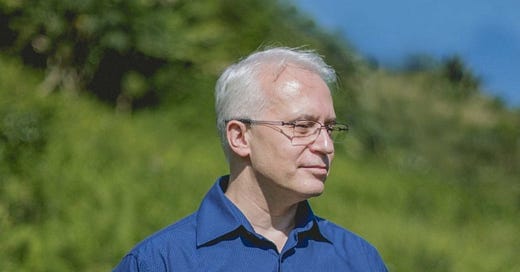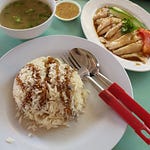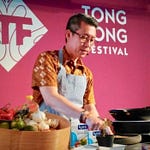Eric Olmedo: “I asked myself why some Malaysians are trying to heal themselves with imported veggies like the trendy superfoods – kale, avocados, and so on. One, it is expensive. Second, it does not benefit the country. Also, you don’t know exactly how they are being grown, they might be full of chemicals unless you buy organic. When you have local wild edible plants which are much cheaper and come from a shorter supply chain as some of these ulam are cultivated by indigenous groups like Orang Aslis, you build a kind of virtuous ecosystem for everyone.” Olmedo, the principal research fellow at the Institute of Ethnic Studies in Malaysia, shares about his passion for ulam, plus: *The case for ulam* *Why has ulam fallen out of favour* *How the ‘globalization of taste’ has hindered public advocacy for ulam* *Why adopting both a top-down and bottom-up approach is necessary* *Defining ‘ulam’* *Ulam as a celebration of contact between cultures, and contact between nature and culture* *Possibility exporting ulam globally, and cultural appropriation* *Vision for The Ulam School* *Reconciling oral tradition and science*
20: Ulam, the superfood of Southeast Asia | Dr Eric Olmedo, Principal Research Fellow at the Institute of Ethnic Studies in Malaysia
Feb 07, 2021
The Singapore Noodles Podcast
The Singapore Noodles podcast features host Pamelia Chia, founder of Singapore Noodles, engaging in open, honest conversations with people who are keeping Singaporean food heritage alive in their own ways. Join us to learn about how we can take an active role in preserving and embracing our Singaporean food heritage and culture.
The Singapore Noodles podcast features host Pamelia Chia, founder of Singapore Noodles, engaging in open, honest conversations with people who are keeping Singaporean food heritage alive in their own ways. Join us to learn about how we can take an active role in preserving and embracing our Singaporean food heritage and culture.Listen on
Substack App
RSS Feed
Recent Episodes













Share this post